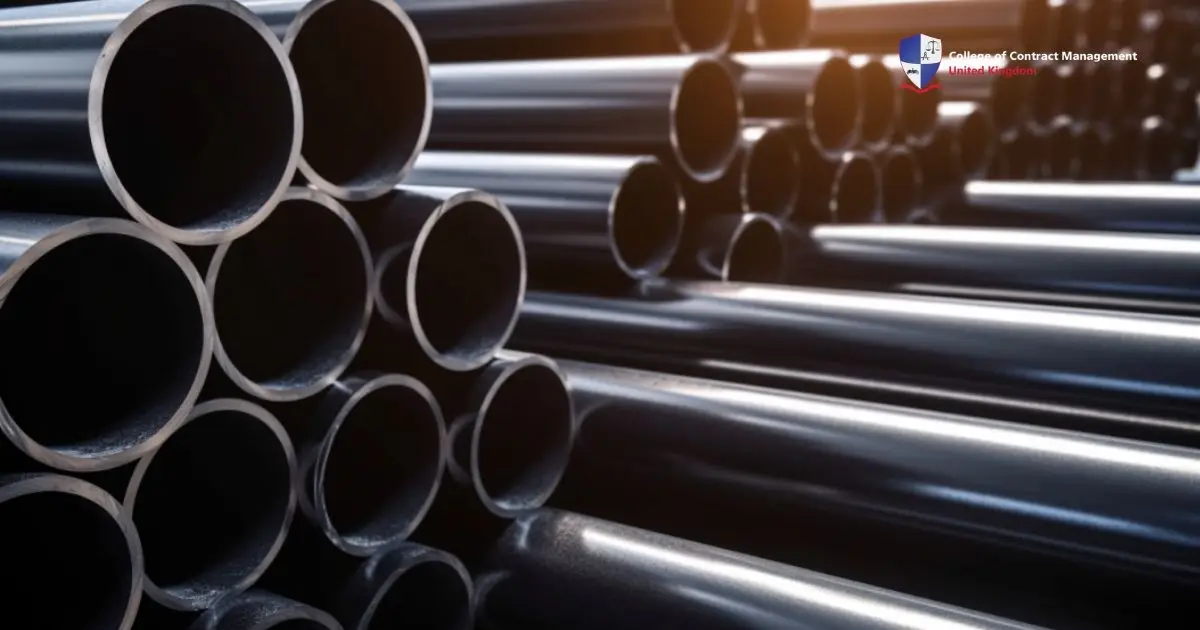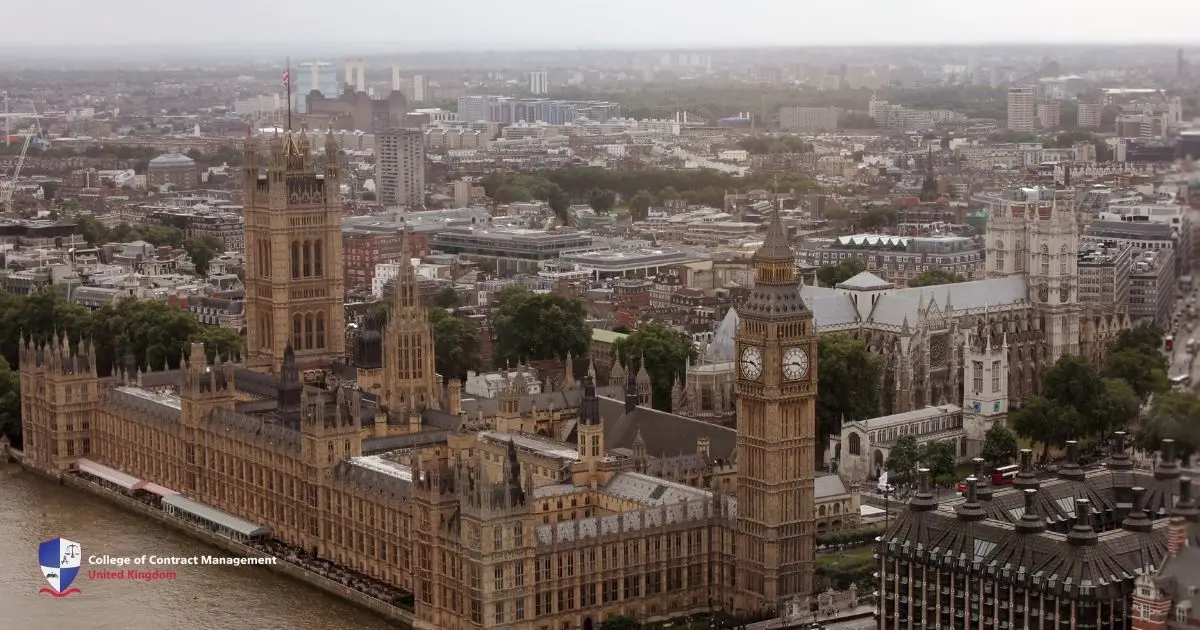British Steel has been a major player in the United Kingdom's manufacturing industry. The Industrial Revolution began long before the 1967 nationalisation of 14 major steel companies, but that event marked a key turning point in its modern legacy. Now, Jingye Group, a Chinese company, owns the current company, which produces long steel products.
The company was founded in 2016 with assets obtained from Tata Steel Europe by Greybull Capital. The primary steel production site is Scunthorpe Steelworks, with rolling facilities at Skinningrove Steelworks, Teesside. Today, British Steel faces difficulties, with its Scunthorpe plant at risk. It is the UK's last producer of virgin steel, with closure due to economic strains. Therefore, this article examines its history, its rise, changes, and the challenges that shaped it.
What is British Steel?
British Steel is a steel company that mainly creates long steel and virgin steel products. Therefore, it makes it one of the few UK-based manufacturers in this sector. Thus, this company plays a major role in the UK economy, producing steel for construction, rail networks and infrastructure around the world. Its plant in Scunthorpe, Lincolnshire, employs 2,700 people, about three-quarters of the company's entire workforce. Hence, making one of the biggest labour employers as well in the area.
Moreover, it has two massive blast furnaces that produce higher-quality virgin steel with fewer defects than recycled steel made elsewhere. This is why it is such a critical plant that would be devastated if it were to close. This is because the plant is currently losing over £700,000 daily. For that reason, a decision regarding nationalisation is currently expected within the month.
In terms of its current situation, if the plants were to close down permanently, the UK would become the only G7 member country that would lose the ability to make that key part. That is why British Steel is highly contested within the government. It is a possible future that the government views as a risk to the country’s long-term security.
The full history of British Steel
Starting a new era for the company, British Steel was bought by Jingye Group, one of the biggest industrial companies, in March 2020. The company has a history of more than 160 years of steel-making experience. Being headquartered in Scunthorpe, with a plant that has been making steel for more than 130 years.
The start of British Steel went hand in hand with the Industrial Revolution. Between 1859 and 1876, the UK’s steel industry began as dozens of factories opened across the country. Gain was rapid, and 1890 proved to be a huge year in our history as steel manufacturing started in Scunthorpe. Now let's delve deeper into the details of their history.
Formation of British Steel Corporation (1967–1988)
In 1967, the Labour government used the Iron and Steel Act 1967. It is formed by the British Steel Company by merging fourteen major steel producers Dorman Long, United Steel Companies, Richard Thomas and Baldwins, and the Steel Company of Wales into a single entity. Hence bringing those companies under public ownership. This move has merged around 90% of the UK’s companies.
Privatisation of British Steel (1988–1999)
Margaret Thatcher’s Conservative government sought free market reforms and policies. It privatised the British Steel Corporation. The sale is one of the largest divestments of the era. After the privatisation, they went through a massive restructuring, which focused on closing unprofitable plants and cutting thousands of jobs. All of this is in pursuit of leaner operations.
Afterwards, in 1999, British Steel merged with the Dutch firm Koninklijke Hoogovens to form Corus Group plc, creating one of Europe’s largest steelmakers. This merger combines the UK steel-making capacities with the merged facilities in the Netherlands, which aims to achieve economies of scale. However, the group faced significant challenges, with the unstable raw material market and competition from low cost producers in Asia.
Tata Steel Acquisition (2007–2016)
India’s Tata Steel completed the purchase of British Steel in April 2007. The deal cost them over £6.2 billion. However, it soared their position as the top 5 largest steel producers. Tata pursued the deal to secure a strong foothold in Europe, diversify beyond its conventional markets, and bolster its global standing as one of the world’s largest steel producers. The financial crisis, UK energy costs, and old pension made it less likely to become profitable.
British Steel Reborn (2016-2019)
Tata Steel Europe sold its long products division in May 2016. This includes the historic Scunthorpe Steelworks, Teesside Beam Mill, and Skinningrove plants to Greybull Capital for £1, reviving the British Steel name. Under Greybull’s leadership, the company slowly returned to profitability, exporting to over forty countries. However, the market uncertainty and Brexit caused insolvency in May 2019 after the government takeover failed. Thus, placing around 5,000 jobs and thousands more in the supply chain at risk.
Jingye Group Acquisition (2020–Present)
In March 2020, Jingye Group agreed to buy British Steel for over £70 million. Jingye promised a £1.2 billion investment package to modernise the Scunthorpe and Teesside sites. Thus, adding electric arc furnaces, a new power plant, and upgraded rolling mills to secure the company’s future. However, the company Steel suffers from the ongoing economic as well as energy crisis and global steel overcapacity, which causes it to be unprofitable.
In early 2025, surmounting a daily loss of over £700,000 started an emergency response from the government. On April 12th 2025, Parliament successfully passed the Steel Industry Act 2025 in record time. This grants the Secretary of State for Business and Trade temporary powers to direct British Steel’s operations and prevent a shutdown of its blast furnaces.
Even though Jingye still retains full ownership, the act prevents it from closing the plants. Talks are still happening for full nationalisation to ensure they keep over 3,000 jobs and ensure the UK’s capacity to produce “virgin” steel is a key element of the national infrastructure and security.
Conclusion
From the start, being a major player in the UK steel industries. With its nationalisation through privatisation, mergers, and foreign ownership, British Steel has remained at the heart of UK manufacturing. The company specifically supplies over 80% of the UK’s railway rails and is the last producer of virgin steel in the country. The company's constant troubles reaching profitability caused the rising daily cost of over £700,000. This prompted the government to step in and take over the company to avert closure and preserve 2,700 jobs.
Thus, British Steel's trajectory underscores the enduring tension between market forces and state intervention. It highlights the challenges of preserving essential industries amid global competition and energy price volatility. Regardless of the outcome, the crisis at British Steel highlights the broader challenges facing heavy industry in the UK. It underscores the need to balance decarbonisation goals, energy affordability, and economic sovereignty in an uncertain global landscape.
To stay competitive in these challenging times, it is important to have the correct training and development programme. The College of Contract Management offers the best courses and construction projects to shape your career. These personalised courses will provide you with the knowledge and skills, even if you are an experienced professional or a new professional in the industry. It is the right to take the next step and increase your knowledge of building materials. Don’t let the industry challenges hold you; take charge of your future and start with CCM today!





